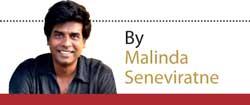Reply To:
Name - Reply Comment
 It was obviously not a year that made for pomp and pageantry, even if that was the desire. All issues have been either framed or impacted by Covid19. In any case, he’s not, for example, a Mahinda Rajapaksa. Covid-19 of course was so sobering that the contrast was lost.
It was obviously not a year that made for pomp and pageantry, even if that was the desire. All issues have been either framed or impacted by Covid19. In any case, he’s not, for example, a Mahinda Rajapaksa. Covid-19 of course was so sobering that the contrast was lost.
No-frills is good, but presidents are not elected to be less or more showy than their predecessors. It’s about manifestos, mandates and delivery. Delivery ran into the Covid19 wall, but this doesn’t mean that it should not be assessed.

The Opposition says ‘fail’ and that’s laughable. The worthies in the Opposition ruled the country for five years. They brought in a Constitutional Amendment violating all established procedures and even giving the Supreme Court the proverbial finger. They created kangaroo courts to hound political opponents: hundreds of cases, but not a single conviction at the end of five years. If special procedures and institutions were required to circumvent flaws in the judicial system then the architects should have addressed systemic flaws. Failed (even as the ‘kangaroo courts’ functioned) to do so. Failed.
Easter Sunday attacks. Need we say more? A clueless duo at the top of the roost who set new standards for incompetence on all counts. That was a period when the notion of ‘failed state’ would have been an eminently appropriate descriptive. As predictable, once their pals took over governance reins, they dropped that nomenclature, brushing off the dust for re-use only when they realized that their pals were about to be ousted. And now they have to maintain the lie.
They’ve made some short videos, probably to convince funders that they are still relevant. Paikiasothy Saravanamuttu has talked of militarisation, authoritarianism and majoritarianism. He’s mentioned presidential task forces and the appointment of former military chiefs to key positions. He believes some human rights organisations are practising self-censorship (maybe they have nothing to say/market these days). He whines that their activities are being scrutinized and are being asked about how they spend their money. Well, should they remain unaccountable? We do know that these NGO lords and ladies insisted that their organisations be left out of RTI purview. For a reason. Obviously.
Saravanamuttu also says the 20th Amendment took us back to the situation in 1978. He has not uttered one word about all the flaws of the 19th, the tinkering associated with it and the confusion regarding executive power which in part facilitated the Easter Sunday attacks. What the 20th did is remove the Constitutional Council, in which their brethren were members and therefore had a say in appointments to the so-called independent institutions. The CC facilitated the appointment of regime-loyalists to top posts, even violating basic principles of meritocracy in appointments to the Supreme Court. President Rajapaksa, in contrast recommended the six senior most judges for promotion to the SC.
Bhavani Fonseka talks about the period when parliament was dissolved and elections had been postponed. She’s upset that during this period the President called the shots. Well, it’s not as if at that time some NGO consortium could have been asked to run the country, surely? The Supreme Court was petitioned, remember? The SC didn’t find anything wrong.
Ruki Fernando has talked of human rights activists being intimidated. No substantiation except for mentioning a lawyer who is under detention. Neither dare mention the reason for detention: suspicion over involvement in the Easter Sunday attacks. Hejaaz Hizbullah has not been found guilty. The jury is out. However, one cannot blame a government for refusing to take chances. We saw what THAT policy did just 19 months ago. In the name of celebrating diversity (intent being to deliberately confuse ‘majority’ with ‘majoritarianism’ and ridicule, harass and put down Sinhala Buddhists) and championing freedoms, the yahapalana years saw the entire security apparatus being effectively dismantled.
They’ve developed a sudden love for vulnerable groups. They are talking about fishermen, people in low- income categories, garment workers etc. They are saying that Covid-19 has made them more vulnerable. Yes, this is correct. It is however not a reflection of any pohottuwa-policy regime.
Then we have Jayadeva Uyangoda, who (unlike Saravanamuttu) says the 20th has given the president more powers than those vested in the office in 1978. No elaboration on this has been offered. The president has more power than those given by the 18th Amendment he says. Well, the 20th didn’t remove the term-limit imposed by the 19th. The passage of the 20th followed proper procedure. The SC was petitioned. The Attorney General informed court that certain clauses would be amended at the committee stage (the 19th saw wholesale changes when even the British tradition, which yahapalanists love to refer to, allows only minor changes by the House of Lords). The SC objected to just one article and said it would require both a special majority in parliament (two-thirds) and a referendum. It was duly dropped.
The burial of Muslims who have died on account of Covid-19 has been mentioned. Again, the government has erred on the side of caution. And that’s a good thing. As has been, the case since February this year, decisions have been informed by health authorities and epidemiologists. State institutions and personnel have been tasked accordingly. Politicians bragged about the efforts of containment, but not at any point were people told to drop their guard. They were told to follow protection protocols even after curfew was fully lifted.
The second wave was not unanticipated. We still don’t know enough about the behaviour of the virus. Quarantine centres were transformed into intermediate hospitals for asymptomatic patients (tested positive) and symptomatic parties were moved to hospitals. First contacts were asked to self-quarantine. Limited resources have been and are being used efficiently.
There have been complaints about privacy and about people being forcibly taken to quarantine centres. Privacy or death, that’s the issue. Angela Merkel said as much, and Germany, as private a country as there is, went along. And it’s not as though anyone can be ‘private’ in the year 2021; certainly not most of the whiners who’ve willingly given enough ‘private data’ when they use credit cards, apple phones, use PickMe or Uber, order food, do their keyboard-‘warrioring’ on social media etc.
Were people herded into quarantine centres? They were certainly not allowed to say ‘no’. The authorities moved and moved fast. Had they not, containment would have been a problem hundreds of times worse. Again, it’s good that an NGO consortium wasn’t mandated to handle the situation.
So. Gota after a year. No frills. Has he turned Sri Lanka into a country that has reached its full potential? No. Close to it? No. On the road to it? No. There’s a lot to be done. Right now, there’s a need to control the Covid-19 situation without compromising the economy. There’s a need to protect the most vulnerable sections of the population.
There’s a need to move from aid-dependency to domestic production. There’s a need for development banks to be set up. There’s a need to set up a co-operative bank (which the People’s Bank was supposed to be!). There’s a need for a new constitution which resolves once and for all the big question of what kind of governance structure suits us best: presidential or parliament-driven.
There’s a lot being done without fanfare. Perhaps there’s a big communications-gap. No-frills is nice. No communication is not. Are the people happy? I don’t think so. The Covid-19 situation have not made for roaring laughter. Does it mean they want the yahapalana failures back in the saddle? Highly unlikely.
It’s too early to say ‘pass’ or ‘fail’ but that day will come. Right now it is absolutely laughable to say ‘fail,’ and hilarious when rank failures make this claim.
[email protected]
www.malindawords.blogspot.com